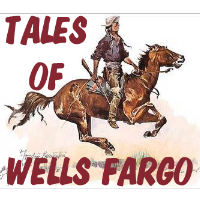Feds Blame Delays in Suing Wells Fargo and Lance Armstrong on War

Banks and other fraudsters whose schemes helped tank Wall Street in 2008 got a rude awakening last week when a federal judge in Manhattan ruled that prosecutors can wait to bring cases for fraud against the government much longer than the fraud statute says because of a special wartime law originally passed to combat war profiteering arising out of World War I.
In the case of U.S. v. Wells Fargo, which prosecutors filed in 2012, the government alleges that from May 2001 to October 2005, “Wells Fargo engaged in a regular practice of reckless origination and underwriting of its [FHA-insured] loans and falsely certified to HUD that tens of thousands of those loans were eligible for FHA insurance.” In other words, Wells Fargo lied about thousands of loans in order to get federal guarantees for them in the event of default, eventually costing the government millions of dollars.
The bank countered that the case should be dismissed because the three-year statute of limitations in the False Claim Act began ticking when the HUD inspector general learned about the alleged fraud in 2004. Justice Department attorneys retorted that the clock started when the attorney general discovered the misconduct in 2011, and that the Wartime Suspension of Limitations Act (WSLA) extended the clock to 10 years anyway.
First passed by Congress in 1921 to extend the statute of limitations for offenses involving fraud against the government and repealed in 1927, Congress re-enacted it in 1942 as the WSLA to address fraud claims arising out of World War II. In 2008, Congress amended the WSLA to clarify that the U.S. is “at war” when Congress enacts a “specific authorization” for the use of armed forces, like those passed by Congress on September 14, 2001 and October 11, 2002.
The WSLA now provides as follows:
“When the U.S. is at war or Congress has enacted a specific authorization for the use of the Armed Forces . . . the running of any statute of limitations applicable to any offense (1) involving fraud or attempted fraud against the United States . . . shall be suspended until five years after the termination of hostilities as proclaimed by the President, with notice to Congress, or by a concurrent resolution of Congress.”
Although Wells Fargo argued that the WSLA applies only to frauds related to war, the Supreme Court foreclosed that argument 60 years ago in United States v. Grainger (1953), holding that the WSLA applied to an alleged fraud involving imaginary or inflated purchases of wool that had no connection to the war. That means that disgraced cyclist Lance Armstrong, currently being sued for fraud by the government related to Postal Service sponsorship of his racing team, also may not argue that the case against him is too late.
As U.S. District Judge Jesse Furman wrote, “the WSLA serves not only to allow the government to combat fraud related to wartime procurement programs, but also ‘to give the government sufficient time to investigate and prosecute pecuniary frauds’ of any kind ‘committed while the nation [is] distracted by the demands of war.’”
Since the 2008 amendments, moreover, the government has successfully invoked the WSLA at least 12 times, starting with a case alleging conspiracy, mail fraud, and false statements in connection with the federally-financed Central Artery Tunnel Project in Boston (a/k/a the “Big Dig”).
Although the ruling means that Well Fargo faces the prospect of paying “hundreds of millions of dollars” in treble damages, Judge Furman did grant the bank’s motion to dismiss the government’s common law claims of breach of fiduciary duty, negligence, gross negligence, unjust enrichment and mistake of fact.
-Matt Bewig
To Learn More:
Al-Qaida Focus Excuses Late Wells Fargo Action (by Adam Klasfeld, Courthouse News Service)
A Special Wartime Law Could be Thorn in Lance Armstrong’s Side (by Reed Albergotti, Wall Street Journal)
Feds’ Excuse for Laggardly Lawsuits: There's a War On! (by Walter Olson, Jurist)
U.S. v. Wells Fargo (pdf)
- Top Stories
- Unusual News
- Where is the Money Going?
- Controversies
- U.S. and the World
- Appointments and Resignations
- Latest News
- Trump to Stop Deportations If…
- Trump Denounces World Series
- What If China Invaded the United States?
- Donald Trump Has a Mental Health Problem and It Has a Name
- Trump Goes on Renaming Frenzy






Comments